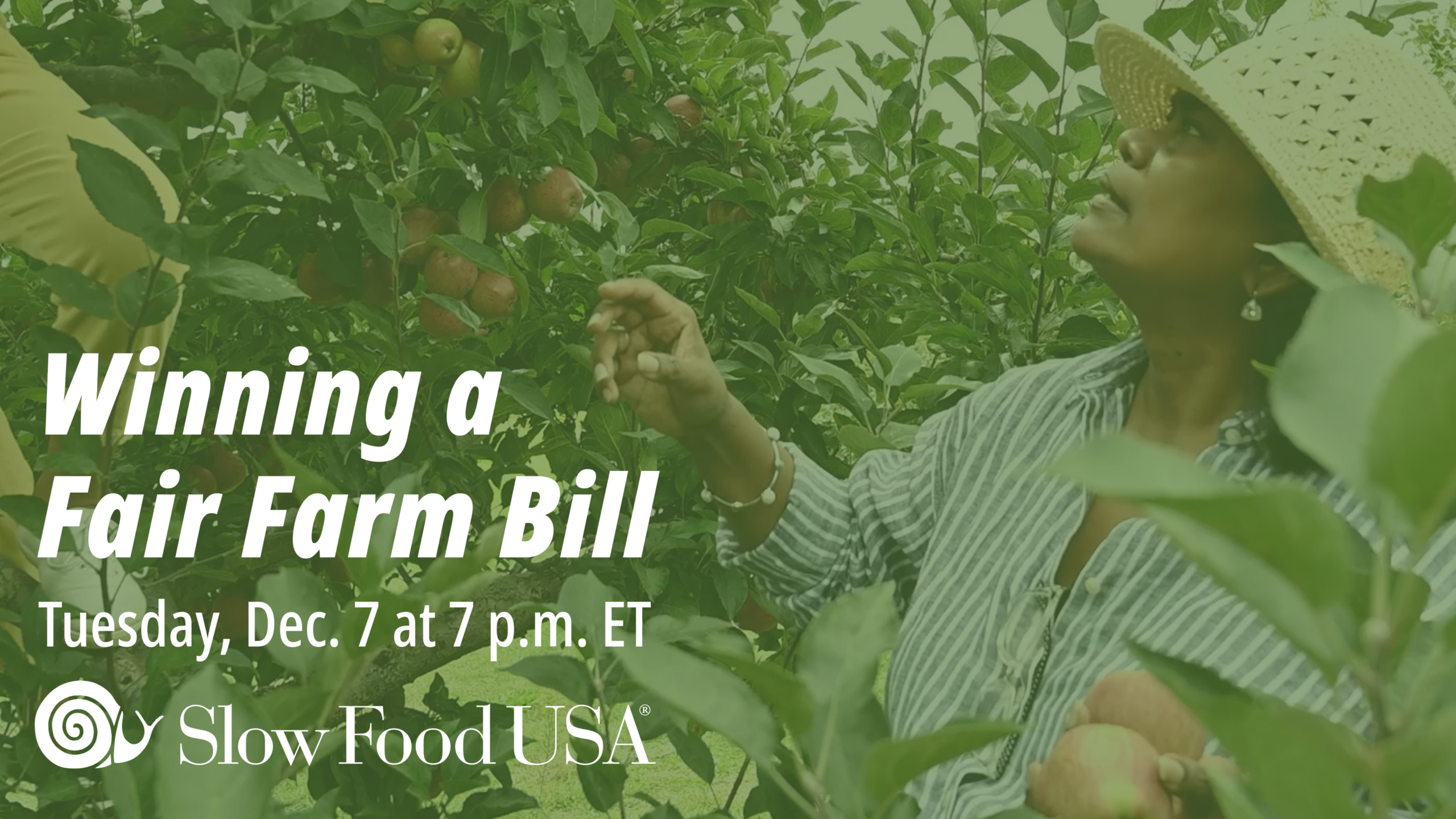By Michelle DiMuzio, Communications Coordinator

Last week, Slow Food USA hosted its last Slow Food Live of the year, Winning a Fair Farm Bill. The panel discussed the successes and failures of past legal action, legislation, executive action, and existing programs designed to support America’s farming and agriculture community, as well as the opportunities afforded by future legislation. There was also a robust discussion addressing the historical inequities of federal agricultural policy as it affects Black, Indigenous and People of Color (BIPOC) and beginning farmers and ranchers and how those inequities can be addressed in the next Farm Bill.
Erin Kelly, Policy and Advocacy Coordinator for Slow Food USA and the moderator of the event, shared four key takeaways from the session:
- Panelist Adam Zipkin, Deputy Chief of Staff to Senator Cory Booker, provided insight on the legislative perspective of the Farm Bill. There is a new mission of accountability with Senator Booker and the USDA, who are pushing for more representation and actual change for BIPOC and beginning farmers. Zipkin reiterated the need to focus on incremental progress, as many changes and improvements are needed.
- Vanessa Polanco, a panelist and the Interim Federal Policy Director at National Young Farmers Coalition, reminded us that organizations like hers represent the farmers who do not have the time or capacity to become involved in policy. National Young Farmers Coalition thoroughly examines the details of legislation that impacts farmers and then advocates for those bills that best serve their constituency.
- Farmer and leader at Mississippi Coalition of Cooperatives Darnella Burkett-Winston provided the perspective of a farmer who feels disconnected from the local and federal policy-making process that impacts her livelihood. This feeling is echoed throughout her farming community, which expresses that legislation is not meeting the needs of the small-scale BIPOC farmer. Not knowing when legislative decisions will support her and her community, Darnella has created a farmers’ cooperative to provide jobs and food to those in her community.
- The Slow Food USA network and our partners must take action and contact their legislators to demand support for legislation that supports farmers and other members of our nation’s foodways. The Farm Bill will be in development as early as January 2022; once we learn about how it does — or does not — pave the way for success for BIPOC, beginning and small-scale farmers, we must take action.
If you missed the session or would like to rewatch it, you can access it here.
To view past Slow Food Live sessions, visit our Slow Food Live page.
To support initiatives like Slow Food Live, become a member or donate today!

